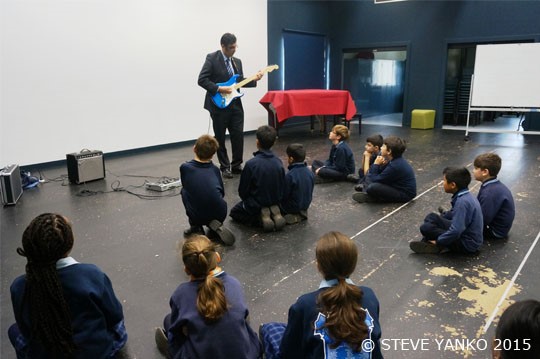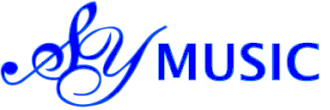I have been teaching music theory and guitar since 1991. Every day that I teach I feel grateful and honoured that somebody trusts me to share my knowledge and experience with them. The question is how do you find the right music teacher for you. The following tips will definitely help if you are looking for a teacher for yourself, a child, a friend etc.
1. Determine What And Why You Want To Learn.
What is it exactly that you want to learn? Do you want to learn how to read music? Do you want to learn how to play your favourite songs by just playing chords or do you want to play amazing guitar solos like Jimi Hendrix or Eric Clapton? Do you just want to learn how to sing Top 40 songs or do you want to learn how to sing in a variety of styles? Do you want to learn an instrument just for fun or do you want to learn how to play an instrument for a career in music?
When you have a better understanding as to what you want to learn, it will make it easier to find the right teacher. Think of it like this, if you want to eat a pizza for dinner, you don’t go to a Chinese restaurant!
2. Finding A Teacher.
With today’s technology it is relatively easy to find the names of music teachers and their contact details online. Sure it’s easy to do a search on Google to find a teacher in your area. However, the best thing to do is to ask your friends, family and colleagues. Somebody in your network will know a music teacher. You can even contact your local primary school or secondary school and see if they can recommend a teacher. Also contact various music shops and ask them if they can recommend a teacher.
3. Qualities Of The Music Teacher
When you contact the music teacher, remember why you want the music teacher. Ask the following questions:
Can you please tell me about your teaching experience?
An experienced teacher should be able to tell you how long they have been teaching and where they have taught.
Generally speaking, the more experience the teacher has the better they will be able to assist you with your musical goals. However, you may also find that the prospective teacher has been teaching for 6 months but has had 20 years of experience of being a performer. You need to keep thinking about YOUR goals and you need to ask more questions.
What is your teaching method?
Some teachers will just teach from a music reference book that has different levels. Basically, the student will have to buy the book, the teacher will go through the book with the student and then when the student has finished the book they will have to buy the next level book. Other teachers may have their own method and use a variety of resources to teach their students.
If you want to learn how to play an orchestral instrument (such as violin or flute) or piano you would be wise to ask whether or not the teacher prepares their students for exams. If the teacher prepares students for exams they will teach according to the syllabus of the local music examination board. When a student completes all of their exams (over many years of study) they will receive formal qualifications similar to a degree for that instrument. So if you have aspirations of being a music teacher of a particular instrument ask the teacher if exams are required.
Remember, when learning about the different teaching methods, think about what you want to learn and why you want to learn it.
Do you teach music theory?
If you want to learn how to read music then you must ask this question. As crazy as this sounds there are some people who call themselves “music teachers” or “guitar teachers” or “singing teachers” who really don’t know music theory. They may be great musicians and might be able to show you some things but they will not teach you music theory.
For those looking for a guitar teacher and who want to read music, do not sign on with a teacher who only teaches TAB. TAB or Tablature is a method whereby a guitarist is shown where to place their finger on a string in a graphic form. TAB is not music theory. If a prospective guitar teacher tries to convince you that it is ask them how a pianist would play a piece of music written in TAB form. The simple answer is they won’t.
As the saying goes “Music is a universal language”. Music theory is the same all over the world. A 4 beat note is written the same way in France, Japan or Australia regardless of the instrument.
The benefit of learning music theory is that students can apply their knowledge to any instrument they choose. By reading music, the student can play any song (depending on their skill level) in any style of music.
If you can read English, you are not restricted on what types of literature you can read. The same applies to music!
What do you actually teach your students?
In terms of music theory, a good teacher will teach the following:
• Sight reading, that is, note identification and duration.
• Music symbols, for example, sharps, flats, ties etc.
• Time signatures.
• Key signatures and transposition (changing keys).
• Chord theory
• Scales and arpeggios
What are your terms and conditions?
Obviously you need to ask the teacher what their fees are and the duration of each session. Ask if payment is made by term or at the end of each lesson. Most music teachers have a cancellation fee. Ask as many questions so that you get an understanding of your obligations and so that you also have a clear idea as to what type of service the teacher will provide.
4. Specialist Teachers
If you are interested in learning an instrument in a particular style of music then make sure you find a teacher that is a specialist in that area. For instance, if you are interested in playing classical or flamenco guitar, then you should look for a guitar teacher who specialises in this style. The reason being is that while the music theory is the same, the technique to play in this style is different from modern guitar styles. The same applies if you want to learn how to sing in an operatic style, don’t go to a singing teacher who only has experience in pop music or vice versa.
5. Amount Of Work
The majority of music teachers you will talk to are professional, knowledgeable and passionate but from experience I can tell you that there are some so called “teachers” who should be flogged.
When you hire a music teacher you pay good money for their service. Imagine my disgust when I hear stories from people that a “guitar teacher” only showed their student 1 chord for the week or only gave the student a few lines to practice for the week. At this rate, a student will be paying a fortune to learn what can easily be taught in a shorter period of time. Frankly, the “teacher” in this situation is ripping off the student.
Also be aware that if a teacher is giving a student too much work, especially when beginning lessons, this may discourage the student from continuing on with lessons.
A good music teacher will find the right balance of work to give depending on the student’s age, intellect and goals.
6. Good Music Teachers Must Communicate.
When you are talking to a prospective music teacher try and gauge their enthusiasm and passion for teaching. Do they sound professional or do they sound like they’ve been partying hard all night? Do they sound warm and friendly or do they sound like an arrogant snob? Is the music teacher answering your questions confidently or are they confusing you with their responses?
If a prospective teacher doesn’t communicate well on the phone or in person, how well do you think they will be able to teach? Teaching music is difficult. A good music teacher knows how to explain and demonstrate musical concepts effectively.
7. Use Your Instincts.
After you have spoken to a prospective music teacher how do you feel? Do you feel comfortable and confident that this person will help you with your musical goals? Do they make you feel excited about learning a musical instrument with them? If so, you have most likely found the right teacher for you.

If you need any further assistance in finding the right teacher don’t hesitate to contact SY Music. We are always happy to help.
Good luck!
STEVE YANKO
© STEVE YANKO 2015
